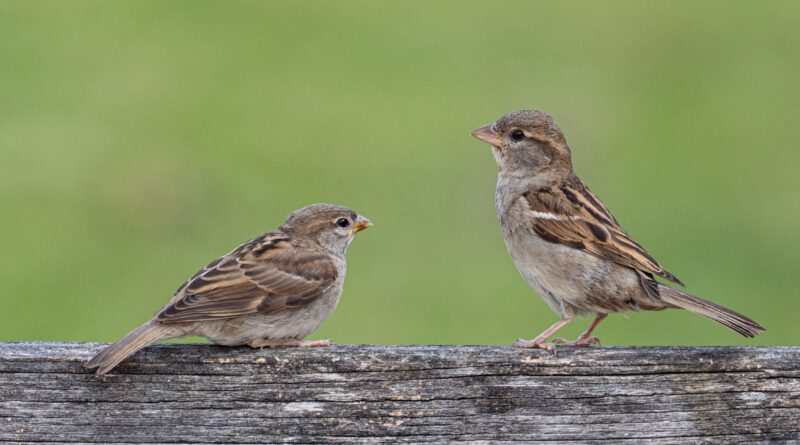Suzume Hyaku Made Odori Wasurezu (雀百まで踊り忘れず – What Is Learned in the Cradle Is Carried to the Tomb)
Suzume Hyaku Made Odori Wasurezu
雀百まで踊り忘れず
It is difficult to break bad habits acquired in childhood, even as one grows older.
幼い頃に身についてしまった悪い習慣は、歳を重ねてもなかなか直らないものです。
The proverb, suzume hyaku made odori wasurezu (雀百まで踊り忘れず), can describe such a situation.
このことを表すことわざに、「雀百まで踊り忘れず」があります。
Since suzume (雀) means “sparrow,” hyaku (百) means “hundred,” made (まで) means “until,” odori (踊り) means “dance,” wasure/wasureru (忘れ/忘れる) means “to forget,” and zu (ず) is a negative suffix, the literal meaning of this proverb is “sparrows never forget to dance until they are a hundred years old.”
「雀」は “sparrow”、「百」は “hundred”、「まで」は “until”、「踊り」は “dance”、「忘れ/忘れる」は “to forget”、「ず」は否定語であるため、「雀百まで踊り忘れず」の文字どおりの意味は “sparrows never forget to dance until they are a hundred years old” となります。
When sparrows move on the ground, they jump in small steps as if dancing.
雀は地面を移動するとき、踊るように飛び跳ねて歩き回ります。
From the fact that the sparrows’ dance-like gait does not change throughout their lifetime, this proverb was born, comparing “dance-like gait” to “bad habit.”
この雀の踊るような歩き方は生涯変わないことから、「踊り」を「悪習」に喩え、上述のような意味を表すことわざが生まれました。




